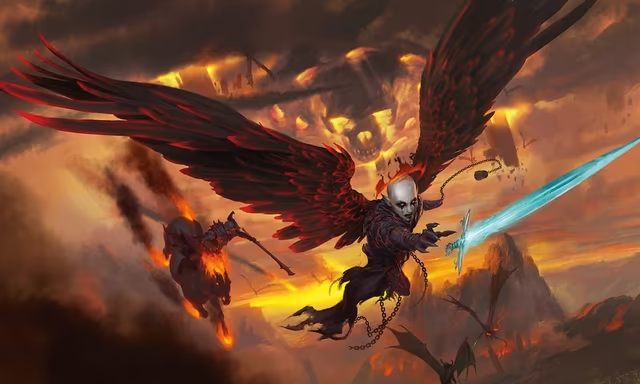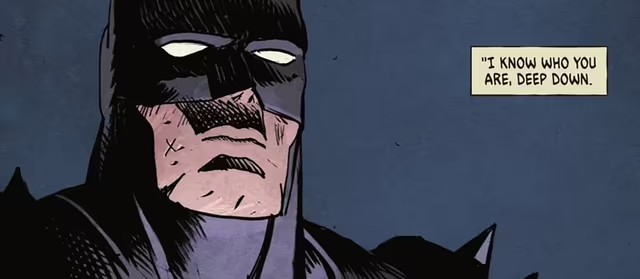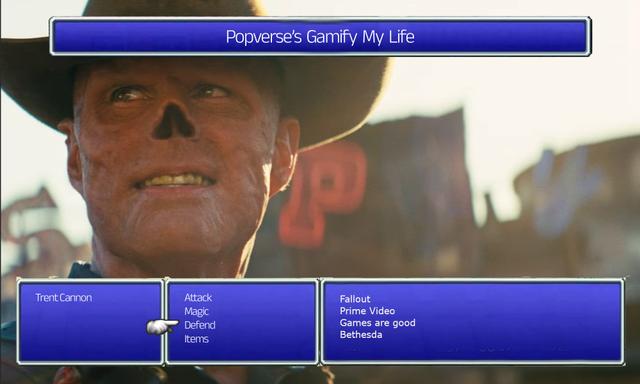If you click on a link and make a purchase we may receive a small commission. Read our editorial policy.
Black cosplayers on characters and representation In pop culture media
Cosplayers are standing up for more Black-centric pop culture in media.

Growing up a mixed Black kid always made me feel like I was walking a line between a few worlds. To the world I was a Black girl, to the kids in my class I was white based on the things I enjoyed, and during the summer I was eating homemade tortillas with my Nana in the Arizona heat. So identity is something I’ve struggled with - a lot. It’s also the reason why I am enamored with the way pop culture is.
I’ve always found it as interesting as I have sad that white-centric shows are almost always the universal standard, but shows with casts that are anything but are “Black shows,” “Asian shows,” “Mexican shows.” It makes me wonder not only why that is, but how that impacts other people because I already know its effect on me.

So I wanted to talk to cosplayers about this and see if they felt the same type of way I did, or if this was just something that kept me up at night trying to figure out. We agreed on a lot of things, but also explored how these Black and white lines in pop culture impacted their cosplay choices, if at all.
Selina Kyle (@cosplayxtwek) is two years out from starting down the cosplayer rabbit hole after doing her interpretation of Snow White, who she dubbed 'Snow Black,' feels it’s the money put behind white-centric shows that pushes them into homes more, “I feel the white-centric shows are viewed as universal because they have the budgets behind them for large marketing campaigns, and in this country, Euro-centric beauty standards are thrown in our faces basically from birth.”

Stalli (@stallicorn) echoed those sentiments saying, “This could just be speculation, but I do think that Black-centric shows don’t get as much of a budget as white-centric shows, which would be problematic in trying to market the show as well to reach every audience.”
Selina and Stalli aren’t wrong about that. Just think of how much is put into ‘Friends’ versus ‘Living Single’ today, years after both shows were on the air. One has massive streaming deals, expensive reunions, and merch out the…you know what, while the other was tossed on Hulu without so much as a peep.

It’s hard for new fans to stumble upon one over the other when one is so out there and the other is treated like a hidden treasure, buried deep in the depths of a streaming service. Hollywood also loves to follow a dollar sign and if that sign is pointing towards Black shows, that’s where it’ll go - eventually.
As much was explained by a cosplay vet of sorts, Bryant Collins (@DJLuffyStix), “On Netflix, they would show all of the white-centric shows like Full House, Friends, etc.,” adding, “Black people were asking, ‘Where are the Black sitcoms at?’ Once Netflix and other apps heard this, they started adding Black sitcoms little by little.”

Anyone with social media during the past couple of years was hit with a barrage of hashtags pertaining to the Black shows Netflix went ahead and finally added to their streaming platform. It was long overdue, but adding shows like Moesha, Girlfriends, and The Parkers did wonders for the streaming platform’s wallet and credibility.
So now that all of these shows are available for streaming on a variety of platforms for everyone to watch, one would hope they would be able to break barriers so that Black people weren’t the only ones getting the references they’re saying pertaining to these facets of pop culture. This is something that I’ve run into throughout my life. An example would be two shows already mentioned; Friends and Living Single. Most of my friends know one, but very little of my white friends know the other. Our cosplayers have come across this as well.

“When I do say a phrase from a Black TV show or have a product used a lot by Black people, I get looks like I’m crazy. There was this one time when I was cooking some food for my Black and non-Black friends, and as I was heading to the table to bring some of the food over, I dropped a little bit of it and said Steve Urkel’s catchphrase ‘Did I do that?’ One of my non-Black friends looks at me and says ‘Yea, you did that,’ and one of my Black friends just busted out laughing at me because they got the joke,” remembered Bryant.
As for Selina, she has a different approach, “I save my references for the friends who will understand them! As far as cosplay, the majority of the characters I do are very well known but the nerd world is so vast that I don't knock anyone for not being knowledgeable about a certain comic or movie. There's still so much that I don't know yet!”

Speaking of cosplaying, most would agree cosplayers do want to do looks that aren’t just great but that showcase characters from pop culture that are going to get attention, characters that are easily recognizable. That can be an issue for Black-centric mainstays in pop culture of non-white audiences aren’t always leaning towards those shows and movies, right? Does that in any way impact characters from Black-centric forms of pop culture being picked as points of interest for cosplayers?
Selina said it’s never been about hesitation, but limiting oneself and that when you cosplay it’s not about idolizing the race of the character, but the character themselves. She also added, “Cosplaying white characters is a f**k you to racism, point blank period.” On the flip side, Stalli said she enjoys bringing attention to those characters, “It makes people want to know who they are, especially if it’s a well put together cosplay.”

A good observation because I know I’ve been to cons, seen certain cosplays, and later looked into what those characters were from. So maybe if more people started to cosplay characters from Black-centric pop culture, we’d see a more level playing field. The same goes for movies and shows starring Asian, Mexican, Native American, Indian, and other casts that aren’t predominantly white.
Of course, it’s important to note that one should always be respectful because there is a line that can be crossed when portraying someone of another race. “Just don’t Blackface yourself to become Miles Morales, and the same goes for Native American, Asian, and other characters,” reminds Bryant.

Things in pop culture with casts that lean white have often been considered the standard, or rather more universal, while everything else is more niche. In talking to our cosplayers we all agreed it was because of the money Hollywood tends to aim its cash. When the flow is low, your show or movie won’t be seen by everyone. If only so few people or a certain kind of people are marketed towards, they’re going to be the only ones getting the references.
Our cosplayers said that doesn’t impact their choices to do or not do characters from more Black-centric entertainment, but agreed that a lot of those references can be lost on the non-Black people in their lives. In the end, if more people expanded their horizons and cosplayed characters more from Black-centric entertainment it would then drive attention and later appreciation towards those TV shows and movies. So long as the looks are respectfully, everyone wins - and looks good in the process.
Follow Popverse for upcoming event coverage and news
Find out how we conduct our review by reading our review policy
Let Popverse be your tour guide through the wilderness of pop culture
Sign in and let us help you find your new favorite thing.
















Comments
Want to join the discussion? Please activate your account first.
Visit Reedpop ID if you need to resend the confirmation email.